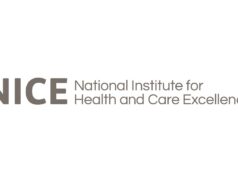
The National Institute for Health and Care Excellence (NICE), which provides national guidance and advice to improve health and social care, has decided that the current evidence on the safety and efficacy of prostate artery embolization for benign prostatic hyperplasia is adequate to support the use of this procedure on the National Health Service (NHS).
Prostate artery embolization can serve as a bridge between medical therapy and surgery, say experts on the topic. The procedure is a minimally invasive alternative to transurethral resection of prostate (TURP) or laser prostatectomy.
NICE first looked at prostate artery embolization in 2013, but felt that more research was required to determine whether the procedure was effective and safe. Since 2013, NICE has worked with the British Society of Interventional Radiology (BSIR) and the British Association of Urological Surgeons (BAUS) to coordinate the UK ROPE study. The study compared embolization to conventional prostate surgery. It found embolization provided a clinically and statistically significant improvement in symptoms and quality of life for men with enlarged prostate.
In light of this study and other new evidence, NICE has updated its guidance. It now says embolization can be offered to patients. The procedure should be carried out by an interventional radiologist with specific training and expertise.
Nigel Hacking, consultant interventional radiologist at University Hospital Southampton, UK, said: “The UK-ROPE project has taken several years and required extra training of professionals working in 18 centres across England and Scotland.”
The updated NICE guidance notes that patient selection should be done by a urologist and an interventional radiologist and that embolization is a “technically demanding procedure [that] should only be done by an interventional radiologist with specific training and expertise in prostatic artery embolization.”
The potential benefits of prostate artery embolization compared with surgery include fewer complications, avoiding a general anaesthetic and that it may be done as a day case procedure.
The BSIR has issued a press release on NICE’s decision stating that the recommendation from NICE could revolutionise the way men are treated.
“Traditional surgical options for this condition can have significant complications, including surgical bleeding and retrograde ejaculation, which can have upsetting effects on men. Prostate artery embolization, the new alternative, as shown in the UK-ROPE registry headed up by Nigel Hacking, can now be offered to men in the UK as an alternative treatment for men who would prefer to avoid surgical options,” the release states.
The BSIR release further adds:
“This is a significant development for men with moderate to severe lower urinary tract symptoms from their enlarged prostate glands. The new guidelines published on 25 April 2018, approved embolization under ‘Standard’ conditions meaning that this treatment could now become a real treatment option for men in the UK.
“Men will still need to be seen by an urologist to exclude cancer and other causes for their symptoms and working as a close knit team they will then liaise with their interventional radiology colleagues to choose the most suitable candidates for this treatment. Embolization is not going to replace TURP, but it will provide a bridge between medication, once this is ineffective or causing side-effects, and surgery. In some men it will provide a definitive solution, but in others there may still be a need for surgical options, including some less invasive procedures such as the Urolift procedure. Tailoring a patient’s needs to their treatment rather than offering a one-size-fits-all policy is a major advance.”
“An enlarged prostate can have a severe impact on the lives of those living with it and complications related to treatment can effect men for the rest of their lives. It is important patients receive all the treatment options and not just conventional surgery. The BSIR, working closely with BAUS and NICE, are very pleased to promote access to this new option,” said Trevor Cleveland, president of the BSIR.














Very nice to hear about this new technique of treating patients with BPH.
I have been diagnosed with BPH since 2012 and have since been on OMNIC OCAS one tablet daily.
Could you please assist by providing names and contact addresses of urologists and if possible, an interventional radiologist whom I could visit for evaluation and treatment.
Will appreciate your prompt response to my enquiries.
Thank you
Hi,
if you consider going abroad for prostate artery embolization treatment I would recommend dr. Tomasz Ludyga from Poland. He is a vascular surgeon with extensive experience, specializing in PAE treatment for benign prostatic hyperplasia. You can refer to this website to find a contact info: https://eurotreatmed.co.uk/prostate-artery-embolization/.
I hope this will help.
Hi My husband is having difficulty passing urine and has been offered TURP which he feels unsure about but reading the news on PAE seems the best way forward is there anywhere in Wales doing this procedure yet or would we have to travel to England or perhaps Bristol are doing it
Would be grateful for any information you could give us
Many Thanks
My husband is considering artery embolization for his enlarged prostate. He has had treatment over the last few years after bleeding. this also coinsides with infections. Please advise where and who would perform the procedure.
Thank you
Educat will be the first fully digitized internet platform in Poland and Europe connecting future students with universities abroad. The platform will have developed and digitized professional diagnostic tools that will allow you to objectively diagnose the candidate and show him the path of development. Additionally, the platform will offer a mentoring service in which mentors will support candidates in the process of creating applications for foreign studies. The process will be automated and the mentor sessions will take place through the remote chat and collaboration tool on the Educat platform. The application development process will also take place on the platform.